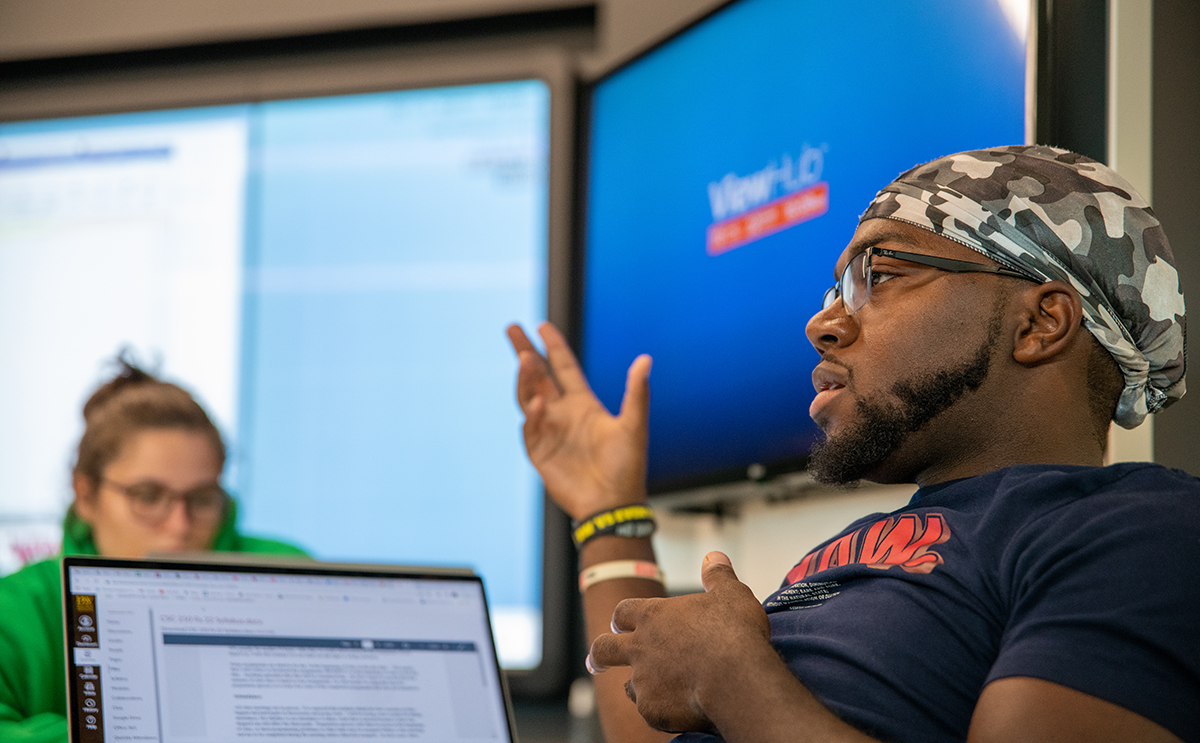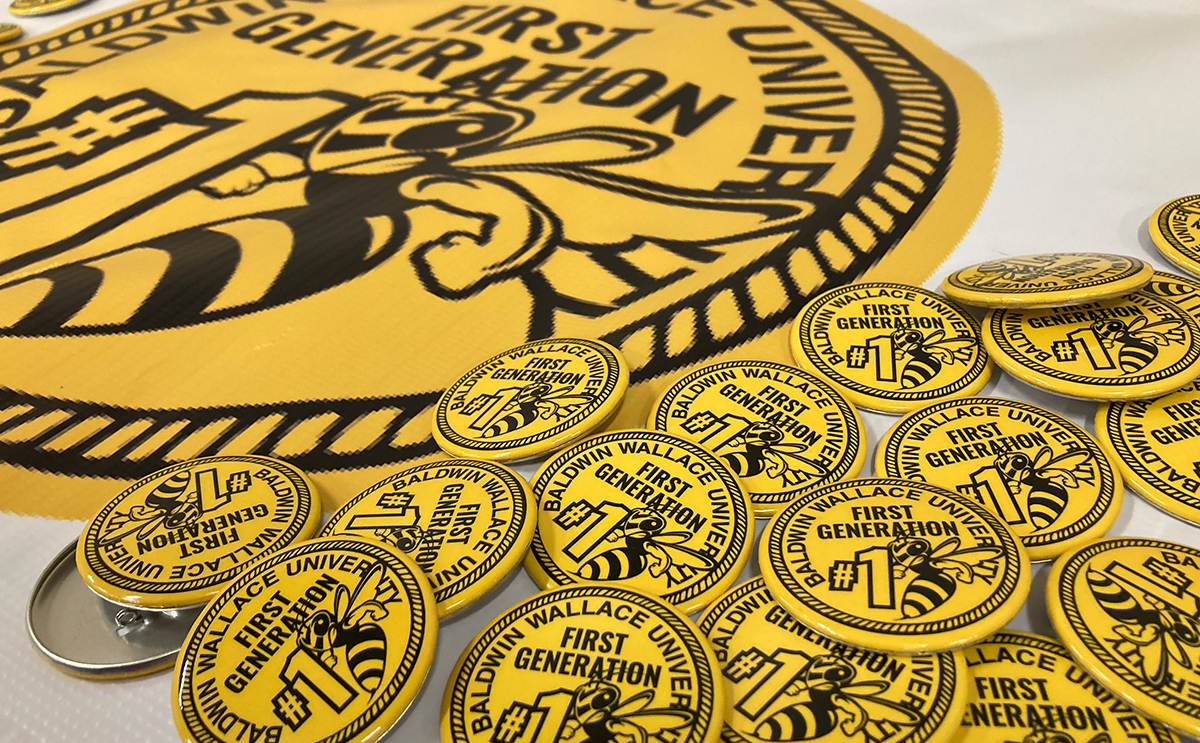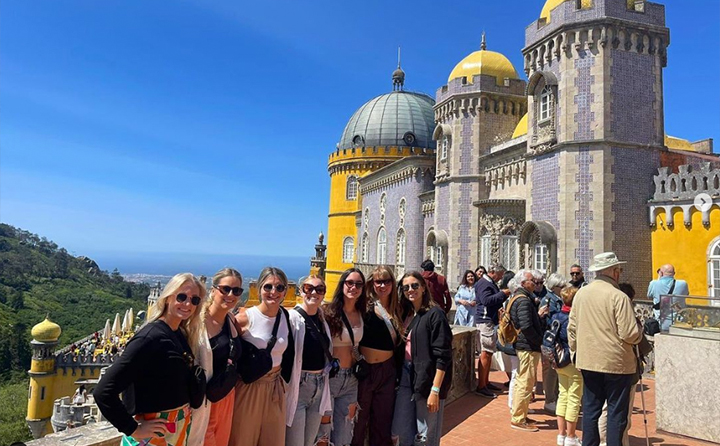Two BW grads awarded a Fulbright
The path to success often has a few detours along the way. Just ask 2020 graduates Klementyna Pozniak and Jessica Villacres. The twist of fate they didn't plan for five months ago was a global pandemic called COVID-19.
In April, the two women learned they were named Fulbright English Teaching Assistants - which makes them part of an elite group of individuals who went through a highly competitive process to secure a coveted grant from the U.S. Bureau of Educational and Cultural Affairs.
For Pozniak, a Cleveland Heights, Ohio, resident who majored in communication studies and philosophy, the detour means she will be delayed in her Fulbright plans to teach English in Ukraine. Instead of leaving in August, she will begin her position in January 2021.
After learning of the delayed start, Villacres, who studied communication sciences and disorders and Spanish and is from Westerville, Ohio, shifted her plans. She will be attending graduate school this fall at Indiana University to pursue a master's in speech-language pathology and participate in a Spanish-English bilingual training program.
Two lives. Two nations.
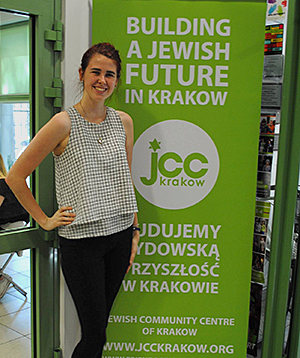 "My
family
came
to
America
when
I
was
eight
years
old
and
for
many
years,
we
traveled
back
and
forth
between
the
two
countries.
I
grew
up
living
two
lives.
That
of
an
immigrant
in
America
who
saw
the
many
possibilities
ahead
of
her
and
that
of
a
Polish
girl
who
missed
the
beauty
and
traditions
of
her
homeland
and
the
loved
ones
still
residing
there,"
she
said
with
deep
reflection.
"My
family
came
to
America
when
I
was
eight
years
old
and
for
many
years,
we
traveled
back
and
forth
between
the
two
countries.
I
grew
up
living
two
lives.
That
of
an
immigrant
in
America
who
saw
the
many
possibilities
ahead
of
her
and
that
of
a
Polish
girl
who
missed
the
beauty
and
traditions
of
her
homeland
and
the
loved
ones
still
residing
there,"
she
said
with
deep
reflection.
"While at BW, I was able to participate in two intensive summer cultural experiences. After my sophomore year, I traveled to Poland to intern with the Jewish Community Centre of Krakow. The following year, I completed the Ukrainian summer language intensive at the University of Pittsburgh," recalled Pozniak.
"All along, my BW professors and Honors Program advisor encouraged and supported me," emphasized Pozniak. "I am excited to teach in Ukraine. Once that is complete, I plan to pursue graduate studies. I would love to go to law school and to participate in a master's program in Slavic studies. If I could have any job, I would want to work for an organization that promotes intercultural exchanges between the United States and countries in the former Soviet Union."
A Childhood Interest Forges a Career Path
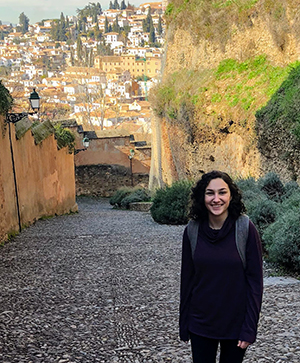 Like
Pozniak,
Villacres
sees
her
career
path
focused
on
intercultural
communication
and
advocacy.
The
BW
Honors
Program
participant
believes
her
interest
in
traveling
and
intercultural
engagement
goes
back
to
her
early
childhood,
where
she
attended
a
world
language
and
cultures
magnet
school.
At
BW,
she
furthered
her
interest
by
studying
abroad
in
Spain
and
doing
Spanish-English
translation
internships
with
COAR
Peace
Mission
and
the
Cleveland
Department
of
Public
Health.
Like
Pozniak,
Villacres
sees
her
career
path
focused
on
intercultural
communication
and
advocacy.
The
BW
Honors
Program
participant
believes
her
interest
in
traveling
and
intercultural
engagement
goes
back
to
her
early
childhood,
where
she
attended
a
world
language
and
cultures
magnet
school.
At
BW,
she
furthered
her
interest
by
studying
abroad
in
Spain
and
doing
Spanish-English
translation
internships
with
COAR
Peace
Mission
and
the
Cleveland
Department
of
Public
Health.
"My interest in bilingual speech-language pathology was really solidified during my sophomore year at BW," said Villacres. "I was taking a Spanish translation class that included a service-learning project for the Cleveland Department of Public Health's Office of Minority Health.
"While translating materials for the organization, I learned about the negative effects of language barriers and a lack of cultural understanding in healthcare settings. After investigating the issue within my own field of speech-language pathology, I discovered an urgent need for bilingual, culturally competent speech-language pathologists. I felt this career path was the perfect way to integrate my various passions of Spanish, intercultural connections and speech-language pathology," she said thoughtfully.

